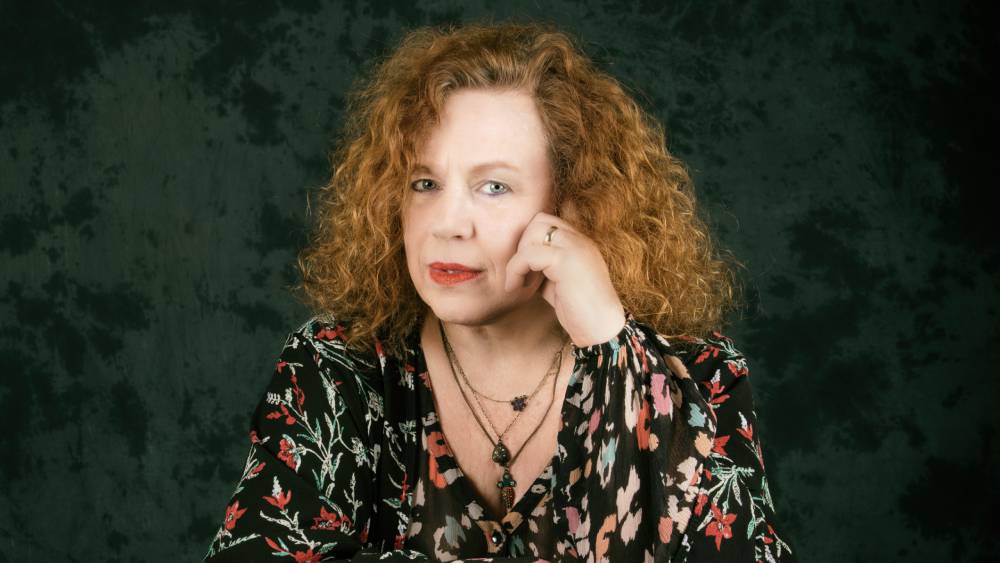Sarah Jane Morris’ new album is a celebration of her musical heroes. With The Sisterhood, out on Friday (8 March), the powerhouse soul, jazz and R&B singer-songwriter pays tribute to some of the influential women who have inspired her own musical journey. From Bessie Smith and Billie Holiday to Annie Lennox and Kate Bush, each track on the project is dedicated to a pioneering female artist, exploring their stories and switching up genres to pay homage to their respective sonic worlds.
For Sarah Jane, who started her music career in the 1980s performing in bands like The Republic and The Communards, this album has been a long time coming. ‘I've wanted to celebrate women in music for a long, long time, but it took me until the second lockdown to actually start the process,’ she explains to M from her home in St Leonards-on-Sea.
During said lockdown in 2020, Morris decided to set herself and her husband Mark ‘something to do to get through [it]’. ‘I noticed that it's always the men in the history books, and I really like to look at the lives of the women; the female singer-songwriters I feel paved the way for somebody like me to be,’ she adds of the inspirational artists who have ‘done what they wanted to do in what has been a male-dominated industry’.
Whittling down her initial shortlist of 50 female artists to just 10 for the album (‘I was sort of thinking at that point, “It’s [representing] the passing of the torch from generation to generation”’), Sarah Jane and Mark set about researching each of their subjects by listening to their music, reading their autobiographies and watching archive interviews. Having mapped out these stories, the pair were then able to write the bulk of the lyrics for The Sisterhood before Sarah Jane met up with her long-term collaborator and co-producer Tony Rémy to begin work on the album in earnest.
When it came to writing the record’s arrangements, Sarah Jane and Tony made the decision to write in the style of each of the featured artists while also imagining ‘what [those artists] might have been doing now’ musically.
‘When we wrote about Billie Holiday, we chose to write about her bravery for continually performing Strange Fruit, no matter how many times the FBI tried to close down her career,’ Sarah Jane explains of the soulful Junk In My Trunk. The track also incorporates the modern influences they believe Billie would have been drawn to. ‘Both Tony and I thought if she was alive she'd be working with a hip hop drummer, so we hired a hip hop drummer for her track. But we ultimately still kept [the sound of the track] within her original genre.’
The Annie Lennox track For The Voiceless, meanwhile, draws on the Eurythmics by trying to ‘recreate that '80s sound while [telling] Annie's story within it’. The song also celebrates Annie’s position of influence within music. ‘Annie stands up for everyone that doesn't have a voice. Her voice is formidable,’ Sarah Jane explains. ‘But I also think what she stands for, especially as an older singer-songwriter, is everything that I would want to if I had that platform.’
One of the hardest tracks to write was the Kate Bush tribute Rimbaud of Suburbia, with the initial research period proving tricky due to its subject’s desire to not be in the public eye. Instead, Sarah Jane listened to ‘all of Kate’s lyrics to try to understand her’. ‘When she hears her song, I want her to know how much respect is being given to her,’ she adds.
As for the song title, Sarah Jane explains that she drew parallels between Kate, who wrote The Man with the Child In His Eyes at age 13 (‘It’s apparent she was a child genius,’ Sarah Jane notes) and French poet Arthur Rimbaud, who started writing at 15. Another source of inspiration was Kate’s 1986 collaboration with Peter Gabriel, Don’t Give Up. ‘Because of that collaboration we thought, musically, we'd like to go into [Peter's] territory, because we also wanted her fans to understand some of the musical references,’ she says.
The Sisterhood is being released to coincide with International Women’s Day (IWD) on Friday. ‘I was originally going to push it out in October when I played London's Cadogan Hall, where we launched the album,’ Sarah Jane explains. ‘But then I found myself thinking, “You know what, I've spent three years putting this together. It's too important to me, I must think big.”’ IWD soon became the obvious release date: ‘It’s about women empowering women, on International Women's Day.’
This album is only the beginning of Sarah Jane’s overall plans for The Sisterhood, too. ‘The Sisterhood is a complex, ambitious project which demands a full band,’ she tells M. ‘My major ambition for the project is that it can develop into a live performance. If I can take this project on the road with the full company, that would take care of the artistic kickback.’ She’s also keen to honour more female artists with The Sisterhood, highlighting the likes of Amy Winehouse, Mahalia and Laura Nyro as her next potential subjects.
‘Every part of this journey has been wonderful,’ Sarah Jane says in conclusion about the project. ‘Brexit had already destroyed my career, then COVID. So you're left sitting there with no money but a lot of time and a very powerful idea about honouring those that came before.
'I already loved the music of those featured in The Sisterhood, but I actually fell in love with their stories and their bravery while making this record. All of these artists, I feel, were torchbearers.’


